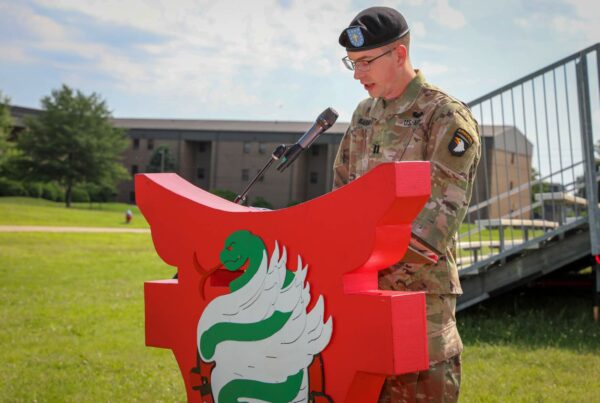According to Genesis 1, women and men were designed by God to serve as equal partners in stewarding God’s mission in the world. In this article, we want to offer four practical steps that churches can take in order to more intentionally express God’s design for full and equal mixed-gender partnership. Let’s begin with a story, then dive into what it means to be an egalitarian church and how to become one.
Layla’s story
I (Layla) am honored to serve on the preaching team at my current church, but, growing up, I would never have imagined that that could be possible. Preachers didn’t look like me. They were not daughters of immigrants. Preachers were men, my young mind concluded, while observing the leaders of our congregation.
Years later, I found myself awakened in my faith and eager to serve in a church that claimed to embrace a vision for women leading in all levels of leadership. This community shaped my growing faith, and I found myself serving where I had the opportunity. I served in the kids’ ministry, gave announcements during services, and I answered the phones in the office while the church staff met. One afternoon, in a conversation with the lead pastor, I asked, “Why don’t we ever have any women preaching, since it’s something we say we value?” In response, the pastor quipped, “Well, if there was a woman qualified for the pulpit, I’d ask her to lead.” This was confusing, because I knew that our community was full of gifted women, leaders in a number of vibrant local ministries. In the end, the church’s value proved to be hollow, and the experience reinforced my perspective that preachers don’t look like me.
Related: Martha’s call to ministry terrified her, but now she’s embracing it
With a move to a new city, I found myself once again searching for a new church community. After a few twists and turns, I arrived at my current church. Once again, it’s a church that proclaims a value for women in leadership, but this church is intentional about embodying that value. It’s a place where not only am I permitted to serve, but I am seen and valued. Perhaps the best example of this came when the pastor heard me preach and invited me onto the pulpit team. This is a place where I am not limited by my gender, but am invited to use my God-given gifts to serve, to partner in mission with other women and men who love Jesus, and to recognize the sacred calling of ministry.
A brief definition
Layla’s story reminds us that it is indeed possible for churches to become places where God’s egalitarian vision can come to pass. The term “egalitarian” refers to a theological position that affirms the full participation of women in ministry, and the full and equal partnership of women and men in our kingdom work. As noted above, it has its first articulation in Genesis 1:26-27, where we learn that women and men are co-created in the image of God and are called jointly to steward God’s creation.
The Reformed Church in America is among organizations that have embraced an egalitarian reading of the Scriptures. In 1991, the denomination’s Commission on Theology put forward a paper on the role and authority of women in ministry, noting that:
“The authority of women and men in ministry is given to them by the triune God, who is the author of the first creation and the finisher of the new creation which exists within and beyond human history. Those called by God are called to exercise their authority in a way which builds up and makes new and seeks goodness and delight, wholeness and harmony, equality and productivity. As God welcomes and persuades men and women into partnership, so must those who represent God. As God opposes all partnerships which misunderstand or abuse the servant authority made manifest by Jesus Christ, so must women and men who share in Christ’s ministry” (Minutes of General Synod 1991, p. 445).
Four steps toward becoming an egalitarian church
With that biblical vision as our goal, here are four practical steps your church can take toward becoming an egalitarian church where women and men serve as full and equal partners in ministry.
Share and celebrate stories of women
First, churches can be intentional about sharing and celebrating the stories of women. Both the Bible and church history are full of stories of women who have offered effective leadership in the church. For instance, the Bible tells us about godly women such as Deborah, Mary, Priscilla, Junia, and more. Likewise, church history gives us many women to emulate, women like Amy Carmichael (missionary in India), Lottie Moon (missionary in China), and Beth Moore (evangelist and author).
How can churches proclaim these stories? In the Sunday service, pastors can preach texts that highlight the contributions of women, they can use illustrations where women are central figures, and they can be purposeful about women’s involvement in leading the service. Outside of the Sunday service, how about a book group dedicated to learning the stories of women in the church? We recommend the book 50 Women Every Christian Should Know by Michelle DeRusha.
Elevate women in leadership
Next, church leaders can be intentional about advocating for and sponsoring women into leadership opportunities. Embodying a shared egalitarian vision requires shared responsibility for seeing such a vision lived out! Representation matters, yet it often takes both advocacy, public vocalization of such goals, and sponsorship—personally vouching for women to have such opportunities—in order to see representation realized.
For both of us, our pathways toward leadership have been lined with champions, both men and women, who both advocated and nominated us for various opportunities that have arisen. As you think about your own congregation or team, are you speaking up about this vision? When making decisions, are you examining where bias might exist? When considering leadership representation, are you creating opportunities for both women and men to partner together?
Related: Worship resources for celebrating women in ministry
What women are in your life who you can champion? Use your voice to express a desire to see women in church leadership!
Develop healthy partnerships with women and men
Third, pursue opportunities where you can cultivate healthy partnerships with men and women. Often in InterVarsity, men and women pair up to lead Bible studies on campus. Layla’s church’s preaching team is made up of two men and two women. As colleagues and friends, we (Layla and Rob) have worked together for a long time. Among other things, for the last several years we have co-hosted the Mutuality Matters podcast that explores the dynamics of women and men working together in ministry. Healthy ministry friendships are a gift, and they can subvert the notion that men and women should steer clear of each other in a ministry context.
Advocate for marginalized women
Fourth, be intentional about advocating for marginalized women. In 2018, the Reformed Church in America’s women’s transformation and leadership team observed the beginnings of a justice movement that came to be known as #metoo and #churchtoo. This movement was (and is) devoted to calling out the all-too-frequent abuse and marginalization of women in so many sectors of society. In response to what they witnessed, the team produced the #WeAreSpeaking statement and resources, which rallied leaders in the denomination and beyond.
Where might women be marginalized in your faith community? Perhaps there are women who aspire to preach but haven’t been given a chance? Perhaps there are women who want to offer pastoral leadership but need development? Perhaps there are women who could become powerful evangelists but don’t see opportunities to do so? What doors can your church open so that women can thrive and use their God-given gifts in greater measure?
Related: God’s irrevocable call to me as a woman in ministry
Conclusion
Sometimes, change happens quickly. More often, change comes slowly. These four practical steps can move churches toward becoming places that more fully embody God’s creation intent for the full and equal partnership of women and men. However long it ends up taking, may we be faithful to move forward with courage and faith!
Additional resources
- CBE International [Christians for Biblical Equality] has many resources to support egalitarian theology. Intro to egalitarian beliefs is a good next step.
- The Junia Project blog provides “support, encouragement, and biblically based resources to help women thrive in all areas of life.”
- Marg Mowczko’s blog houses “articles about the mutuality and equality of men and women in Christian marriage and ministry, plus Bible studies and articles about our new life in Jesus.”
- Together in Ministry: Women and Men in Flourishing Partnerships by Rob Dixon
- Lavish Hope podcast episode: “Together in Ministry” with Rob Dixon
- Women and Men Leading Together podcast co-hosted by Layla Van Gerpen
- Building God’s Church Together Bible study
- Equity-based hospitality study
- Women of the Bible study series
- Theological resources by, for, and about women in the church
- Voices of women: blogs written by and for RCA women and other Reformed thinkers
Disclaimer: Some of the links on this page are affiliate links, meaning that, at no cost to you, we will earn a commission if you click through and make a purchase. However, we were not paid to review or recommend any of the links on this page.

Dr. Rob Dixon
Dr. Rob Dixon lives in central California with his wife, Amy, and their four children, and works as a campus minister with InterVarsity Christian Fellowship. He earned a Doctor of Intercultural Studies degree at Fuller Theological Seminary, where he focused on discerning the attributes of flourishing mixed-gender ministry partnerships. Rob is the author of Together in Ministry: Women and Men in Flourishing Partnerships. In his free time, Rob roots for the Dodgers, teaches at Fresno Pacific University, and plays as much pickleball as possible. Find him online at drrobdixon.com.

Layla Van Gerpen
Layla Van Gerpen has served with collegiate ministry, InterVarsity Christian Fellowship, for over 20 years in California and Nevada. She also serves on the preaching team at her church, Midtown Vineyard. She is passionate about developing leaders, especially around areas of race and gender. As a Lebanese, Japanese daughter of immigrants, Layla grew up with a deep love for hospitality, cross-cultural relationships, and advocacy work. Together with her husband, Daniel, they find joy raising their two boys, Everett and Grant.



